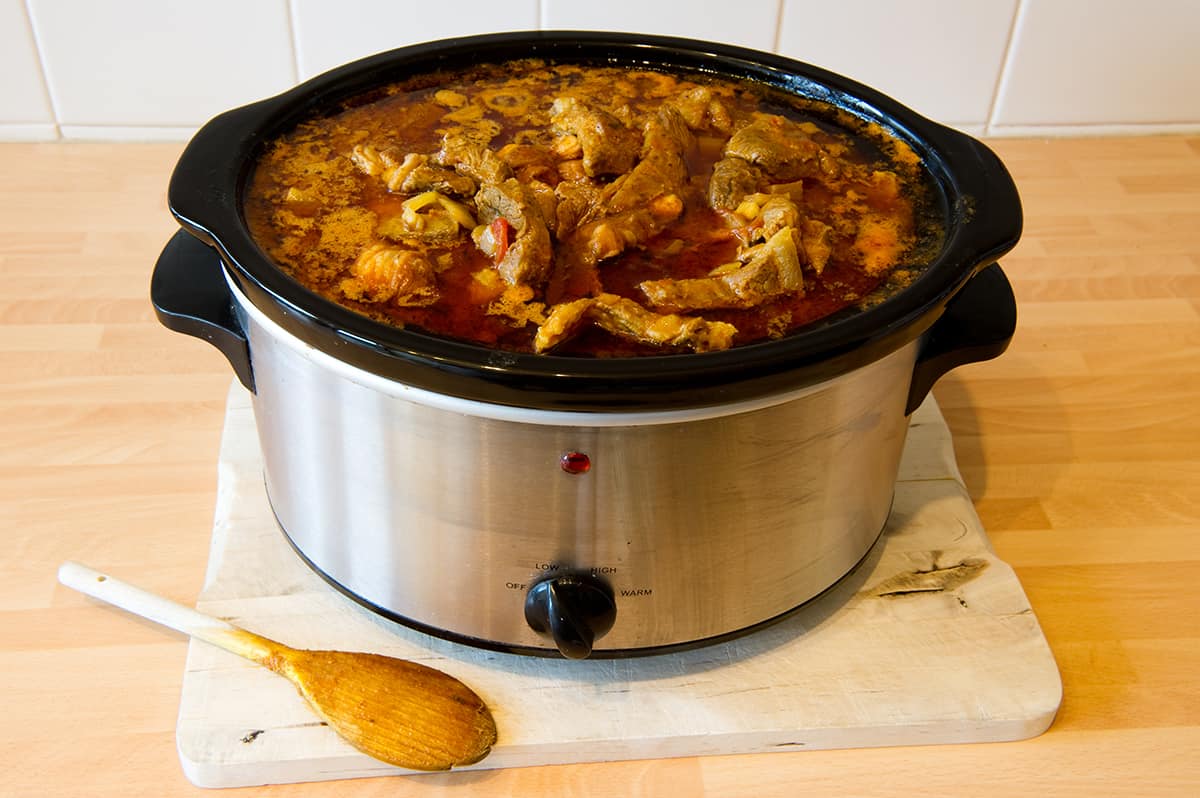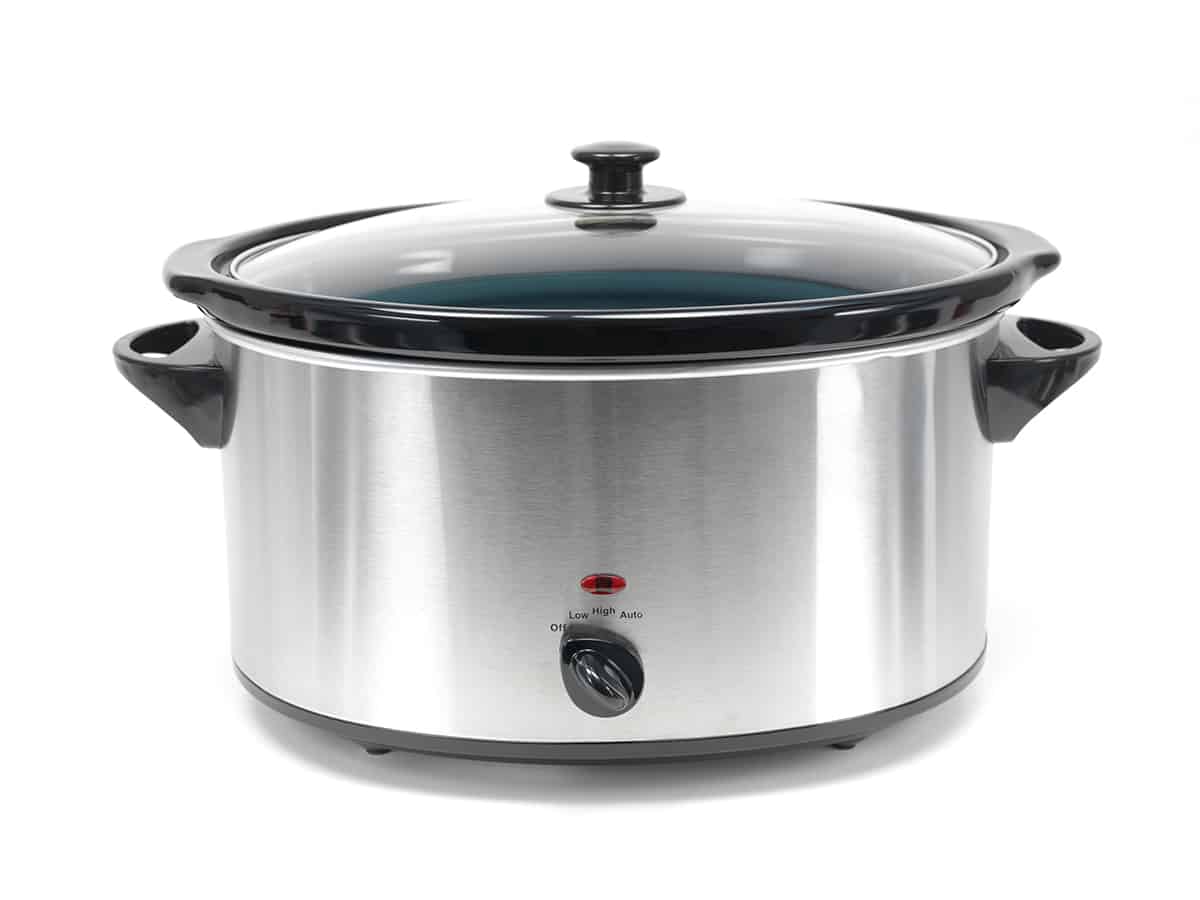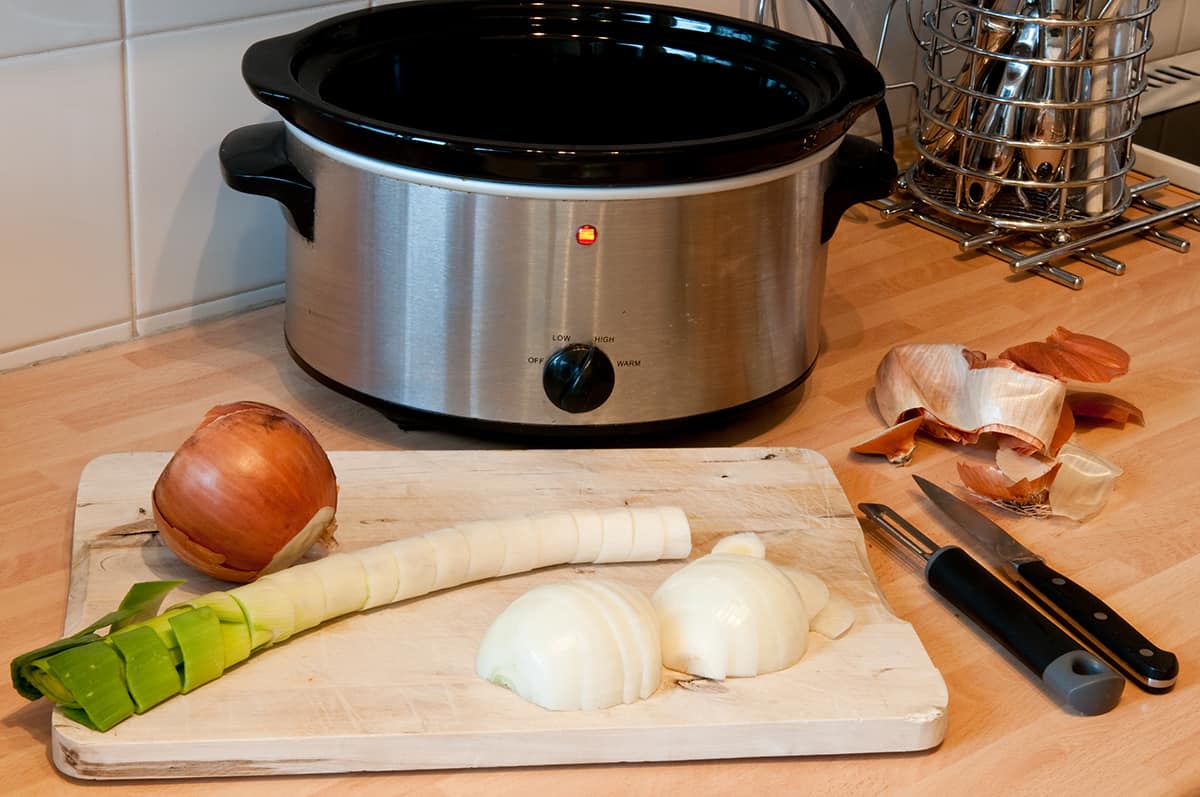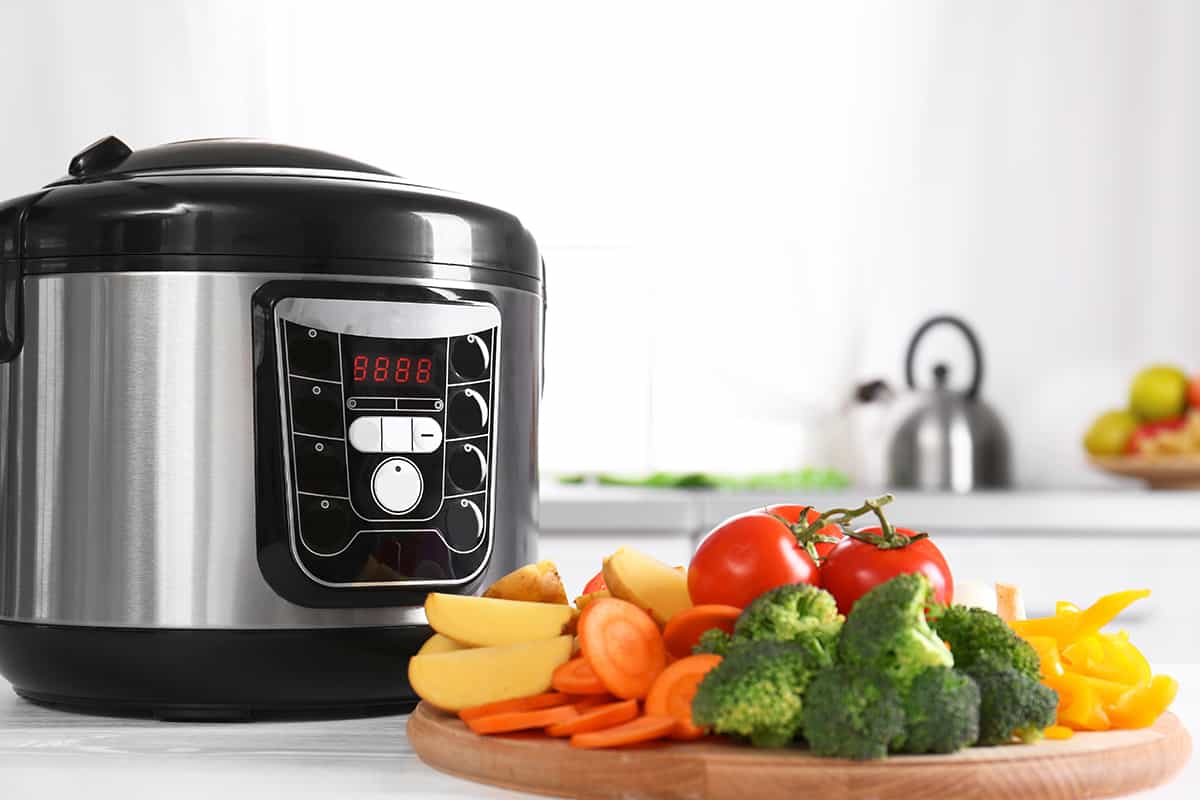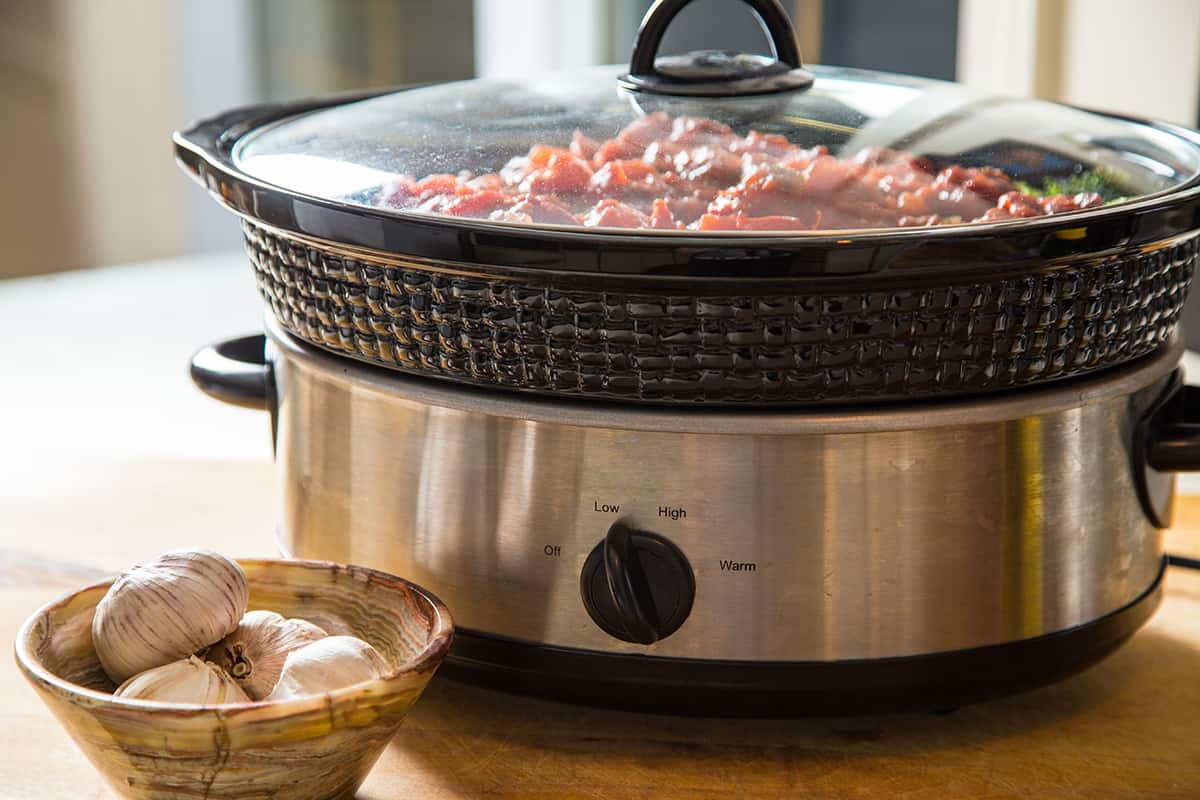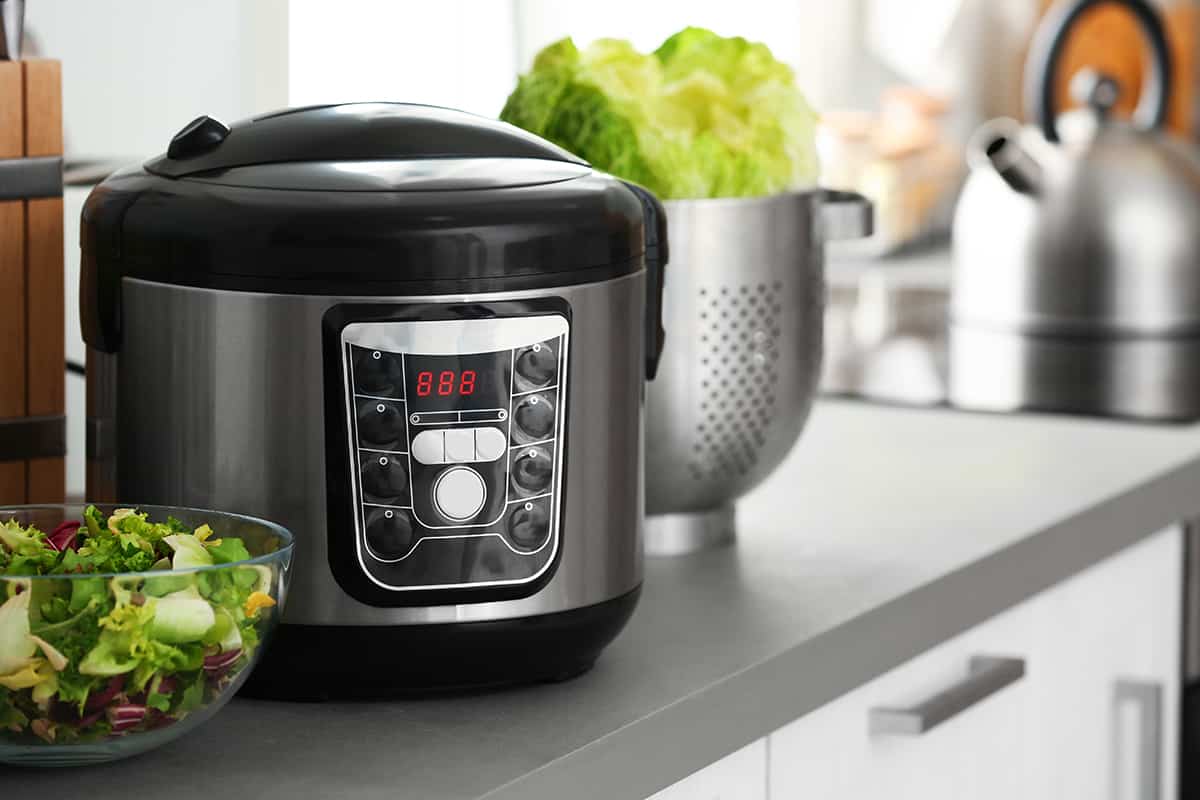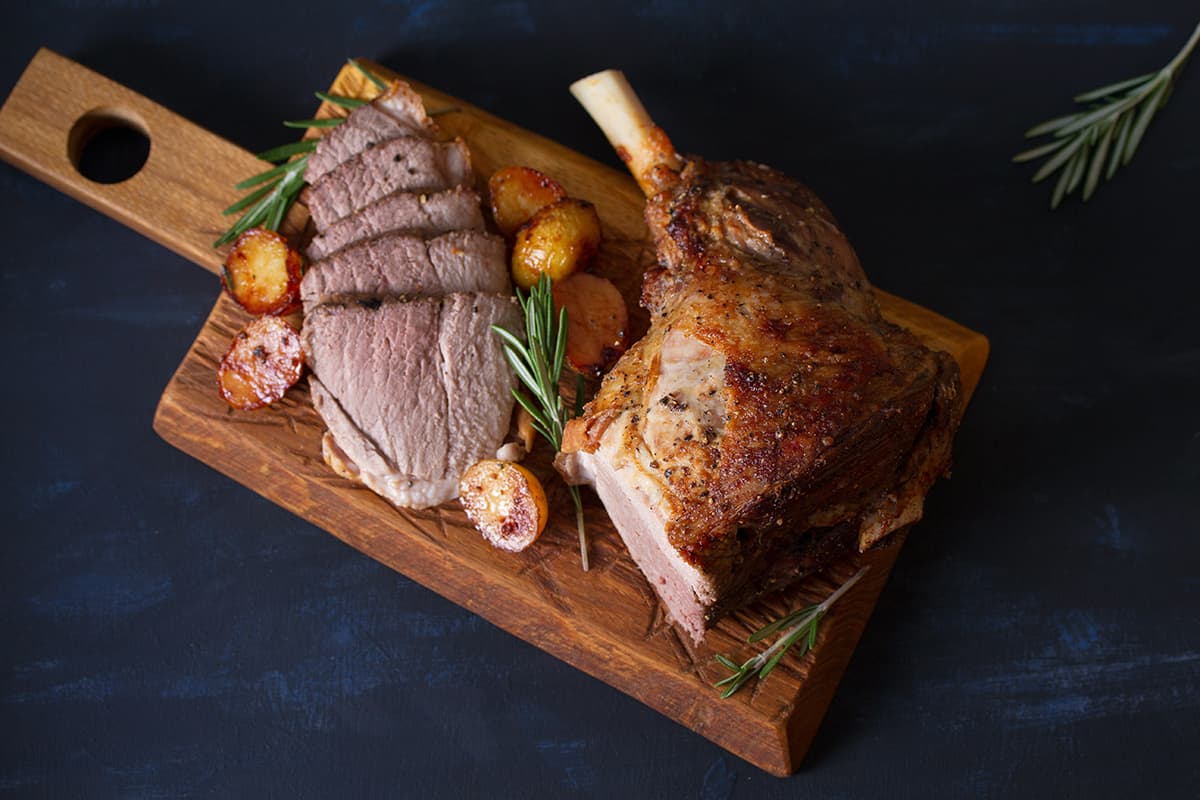Slow cookers have become a popular kitchen appliance for many home cooks, offering the convenience of preparing delicious meals with minimal effort. These handy devices have gained a reputation for being energy efficient and budget-friendly, making them an appealing option for those looking to save both time and money in the kitchen.
Assuming an electricity rate of $0.23 per kWh, the cost of running a slow cooker is as follows:
- Low (75 to 150 watts)—$0.02 to $0.03 per hour
- High (150 to 210 watts)—$0.03 to $0.05 per hour
The exact cost to run your slow cooker depends on how many watts it draws and the electricity rate.
In this article, we’ll dive deeper into the costs associated with running a slow cooker, from the initial investment to the impact of ingredients and cooking practices.
Slow Cooker Electricity Usage and Cost
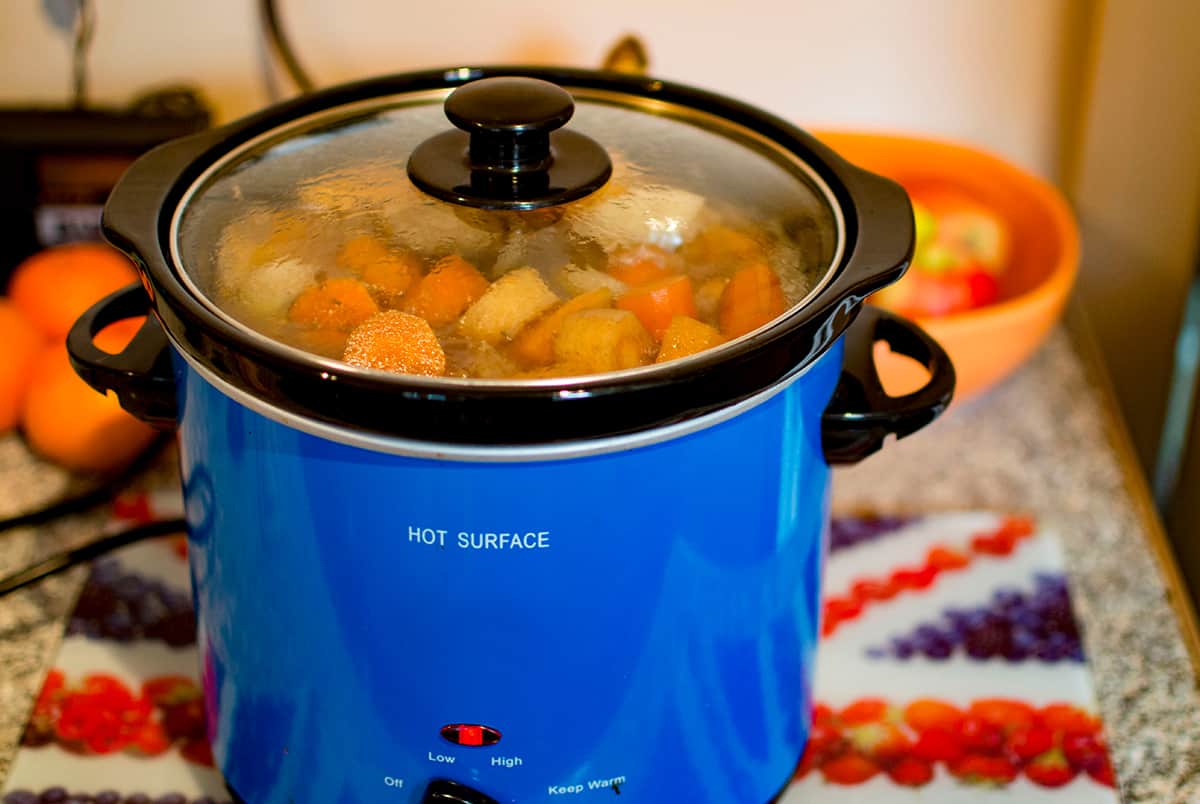
Let’s discuss how much energy slow cookers use, the factors that influence their electricity usage, and how their energy consumption compares to other kitchen appliances.
Average electricity consumption of slow cookers
Slow cookers typically use between 75 and 210 watts, depending on the model and the heat setting. To calculate the cost of running an appliance, you can use the following formula:
- Cost = (Wattage × Hours of Use × Electricity Rate) / 1000
Using this formula and a rate of $0.23 per kWh, we can calculate the cost of running a slow cooker on both low and high settings for different durations:
| Continuous Usage | Low Setting (75 to 150 Watts) | High Setting (150 to 210 Watts) |
| 1 hour | $0.02 to $0.03 | $0.03 to $0.05 |
| 2 hours | $0.03 to $0.07 | $0.07 to $0.10 |
| 3 hours | $0.05 to $0.10 | $0.10 to $0.14 |
| 4 hours | $0.07 to $0.14 | $0.14 to $0.19 |
| 5 hours | $0.09 to $0.17 | $0.17 to $0.24 |
| 6 hours | $0.10 to $0.21 | $0.21 to $0.29 |
| 7 hours | $0.12 to $0.24 | $0.24 to $0.34 |
| 8 hours | $0.14 to $0.27 | $0.27 to $0.39 |
| 9 hours | $0.15 to $0.31 | $0.31 to $0.44 |
| 10 hours | $0.17 to $0.34 | $0.34 to $0.48 |
| 11 hours | $0.19 to $0.37 | $0.37 to $0.53 |
| 12 hours | $0.21 to $0.41 | $0.41 to $0.58 |
| 1 Day | $0.41 to $0.83 | $0.83 to $1.16 |
| 1 Week | $2.90 to $5.80 | $5.80 to $8.11 |
| 1 Month | $12.60 to $25.20 | $25.20 to $35.29 |
Factors influencing electricity usage
1. Size and capacity
The size of your slow cooker can impact how much electricity it uses. Larger slow cookers usually consume more energy because they have a larger surface area to heat. However, the difference in electricity usage between small and large slow cookers is generally minimal.
2. Cooking time and temperature
The length of time you use your slow cooker and the temperature setting you choose will also affect its electricity usage. Cooking on a high setting uses more energy than cooking on a low setting, and longer cooking times will result in higher electricity costs.
3. Efficiency and insulation
Some slow cookers are designed to be more energy efficient, with better insulation to retain heat and reduce electricity consumption. An energy-efficient slow cooker may cost more upfront but can save you money on electricity bills in the long run.
Cost Comparisons: Slow Cooker vs. Other Cooking Methods
When deciding whether to use a slow cooker or another cooking method, it’s helpful to compare their costs. Let’s take a look at how the cost of using a slow cooker compares to stovetop cooking, oven cooking, pressure cooking, and microwave cooking.
Slow cooker vs. stovetop cooking
Stovetop cooking with an electric range typically uses between 2000 and 5000 watts, depending on the burner size and heat setting. This means that stovetop cooking can be more expensive than using a slow cooker, especially for longer cooking times. However, stovetop cooking is often faster, so the overall cost difference may not be significant.
Slow cooker vs. pressure cooker
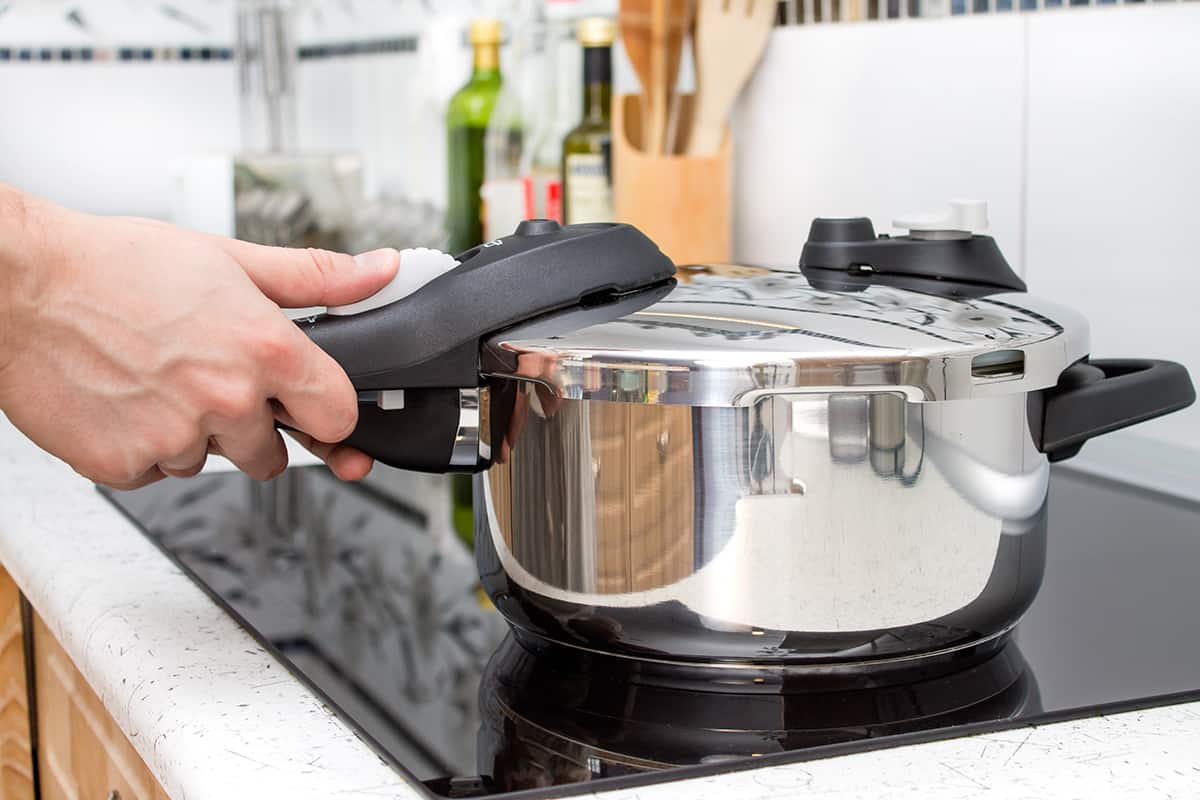
Pressure cookers use 700 to 1800 watts but cook food much faster than slow cookers, thanks to the high pressure they generate. Although pressure cookers use more power per hour than slow cookers, their shorter cooking times can make them more cost-effective for some dishes.
Slow cooker vs. microwave
Microwave ovens use 500 to 1200 watts and cook food quickly, making them an energy-efficient option for reheating and short cooking times. However, they may not be suitable for all types of dishes, like slow-cooked stews or roasts.
Table summary
Here’s a table summarizing the differences in cost between the appliances, using a rate of $0.23 per kWh:
| Appliance | Wattage Range | Cost per Hour ($0.23/kWh) |
| Slow Cooker | 75 to 210 | $0.02 to $0.05 |
| Stovetop | 2000 to 5000 | $0.46 to $1.15 |
| Pressure Cooker | 700 to 1800 | $0.16 to $0.41 |
| Microwave | 500 to 1200 | $0.12 to $0.28 |
Initial Investment: Purchasing a Slow Cooker
When it comes to buying a slow cooker, there are a few things to consider. First, you’ll need to decide on the size, features, and brand that best suit your needs.
Price range of slow cookers
Slow cookers come in a wide range of prices. You can find basic models for as low as $20, while more advanced models with extra features can cost over $200. On average, a decent slow cooker will cost around $50 to $100. Keep in mind that you’ll often get what you pay for, so it’s important to balance your budget with the quality and features you want in a slow cooker.
Choosing the right slow cooker for your needs
1. Size
The size of the slow cooker you choose will depend on how many people you’ll be cooking for and how much food you want to prepare at once. Slow cookers come in various sizes, from small 1.5-quart models to larger 8-quart versions. Smaller slow cookers are suitable for individuals or couples, while larger ones are great for families or meal prep.
2. Features
Different slow cookers come with different features. Some common options include programmable settings, multiple heat levels, and timers. More advanced models may also have features like a built-in thermometer or a keep-warm function. Think about which features are most important to you and whether you’re willing to pay extra for them.
3. Brand reputation and warranty
Well-known brands are more likely to produce reliable and durable appliances. A good warranty will give you peace of mind, knowing that you’ll be covered if your slow cooker malfunctions or breaks down.
